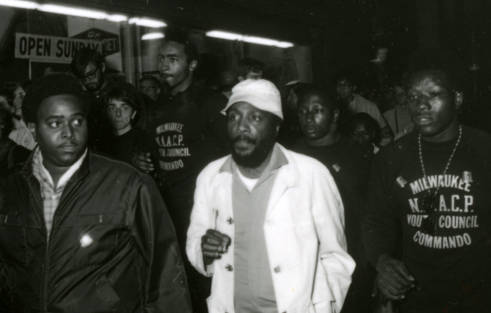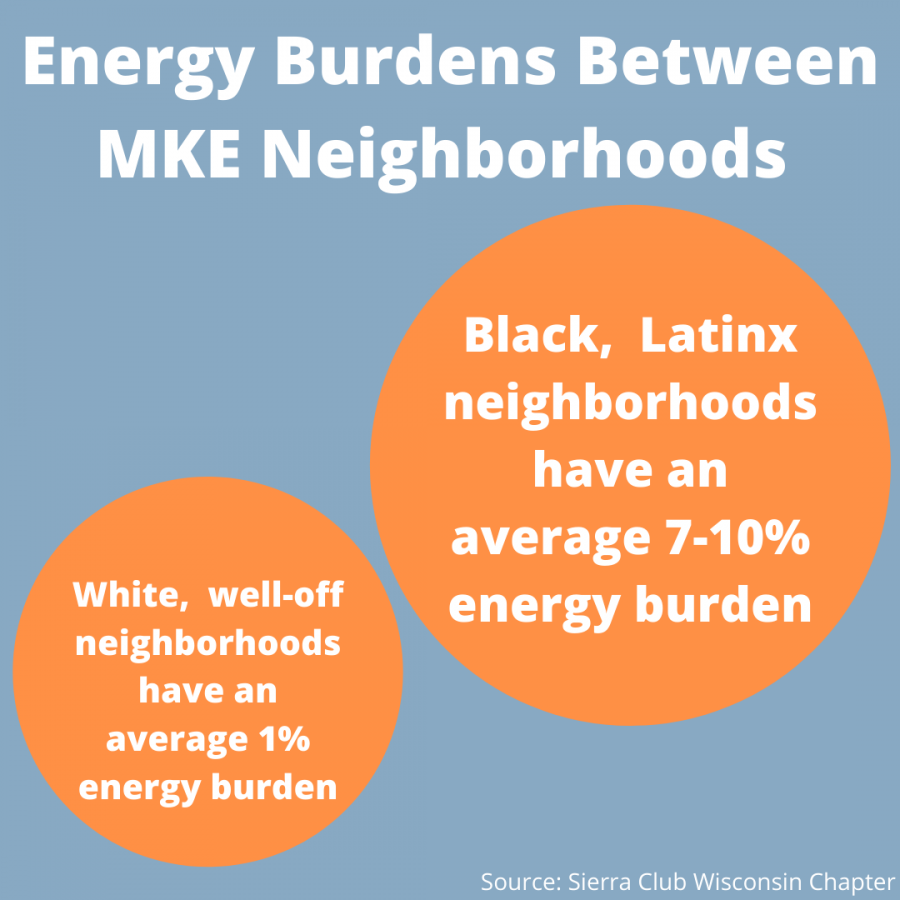
The 50th anniversary of the Milwaukee Fair Housing Marches demonstrated that race and economic inequality remain ingrained across the United States and is an issue that still prevails in the Marquette and Milwaukee community.
During the Civil Rights era, open housing was an issue that those living in many black communities fought for. Over one hundred open housing advocates gathered for a rally at St. Boniface Church in Milwaukee Aug. 28, 1967, led by the Rev. James Groppi and the NAACP Youth Council. The group marched across the 16th Street Viaduct with posters that read “We Need Fair Housing.”
At first, the walk across the viaduct was peaceful and uneventful, but as they approached the other side, they were met by more than three thousand white residents who had come out to observe and oppose the demonstration.
Groppi, a white Catholic priest who had grown up on Milwaukee’s South Side, promised that civil rights activists would not only return the following day, but would continue to march until the Common Council enacted an open housing measure.
The Milwaukee Fair Housing Marches lasted for two hundred consecutive nights. The Milwaukee Youth of the NAACP announced it was ending the marches March 30, 1968.
The campaign gained widespread national attention, which helped in the congressional passage of the 1968 Civil Rights Act, also known as the Fair Housing Act, April 11, 1968.
“Marquette University campus is right next to one of the most important bridges that was a focus of Civil Rights activism, the 16th St. Bridge, which is perhaps second only to the Edmund Pettus Bridge in Selma, Alabama, for its importance to the Civil Rights Movement,” associate English professor Jodi Melamed said in an email.
The 16th Street Viaduct serves as a significant landmark in the Civil Rights Movement in Milwaukee. It was named “the longest bridge in the world” by locals because it connected “Africa with Poland.”
The local stigma toward the 16th Street Viaduct shows the deep segregation between the African-American north side and the predominately white south side.
“It remains linked to actually existing segregation in Milwaukee,” Melamed said. “The best way for Marquette University to honor the legacy of (the) Fair Housing Marches is to teach about them and to work to bridge the divisions between the campus and communities north and south of it.”
Melamed’s students have the chance to gain knowledge of the marches in her class. Madison Hicks, a freshman in the College of Communication, said it is a pertinent learning experience.
“Professor Melamed has been speaking about the upcoming anniversary of the Fair Housing Marches in class,” Hicks said. “She helps bring awareness to the events that have occurred in our own community. Many students are unaware of the Fair Housing Marches. In my opinion, it makes it relevant to learn about.”
During Mission Week, the Office of Community Engagement, in collaboration with the Offices of Mission and Ministry, and Diversity and Inclusion, hosted a community brainstorming session on behalf of the coordinating committee of the 50th anniversary of Milwaukee’s Fair Housing Marches.
“The session focused on how community individuals, organizations and institutions could contribute to the upcoming ‘200 Nights of Freedom’ project that is starting in August 2017,” Daniel Bergen, executive director at the Office of Community Engagement, said.
Bergen added that the Office of Community Engagement has led further discussions related to the anniversary among faculty, staff, students and community partners.
The importance of those talks was not lost on the students. “I think it’s important to understand the history of the community that we live in,” Hannah Seeman, a sophomore in the College of Communication, said.


